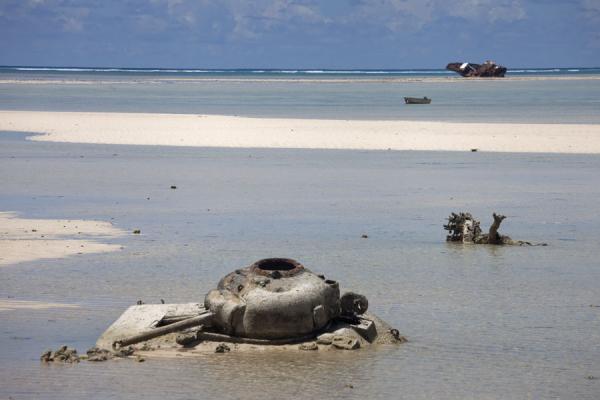From O'Brien's Second most Powerful Man in the World: Admiral William Leahy, which discusses FDR's chief of staff and his outsized and under-remarked influence on American grand strategy.[Leahy believed that...] The Allies needed to cut off the Germans and the Japanese from their different sources of production, weaken their economic fundamentals, and, if necessary, invade only once the result was beyond question. Leahy had no stomach for massive land battles, which, he believed, would inevitably lead to high and unnecessary casualties. Therefore, he saw no need for the United States to prioritize production for a large army. In his mind, mass armies belonged to the past, and America needed to win an air-sea war based on machinery over human sacrifice.
In this, he was joined by Franklin Roosevelt, probably one reason why the president determined early on that Leahy would be his point man in the military in determining the answers to these questions. It is worth noting that Roosevelt first started taking a hard line against a large army not long after Leahy became his chief of staff.4 Both agreed that the army’s future size needed to be reduced to keep production high.5 Both also believed the war would be won through the control of supply and movement. Yet surprisingly for a man so enamored of sea power, Roosevelt pushed for the production of aircraft over everything else, including ships. Having been captivated by the impact of airpower as the war had developed, he decided that the United States needed to seize air superiority to defeat Germany and Japan, and called for the production of a whopping 131,000 aircraft in 1943, 100,000 of which would be combat planes. It was a remarkable figure, imaginable only if all other construction projects were cut drastically, and it caused an intense political and strategic struggle among the top war planners.
George Marshall, with the army’s needs at the forefront of his mind, had completely different priorities from the president’s. Focused on an army-centric, Germany-first strategy that called for a cross-Channel invasion as early as possible, he wanted a formidable land army with millions of soldiers supported with phalanxes of tanks. If Marshall were to get his way, air and sea production would have to bear the brunt of the cuts everyone knew were coming. At the same time, he would need to keep Hap Arnold and the US Army Air Force on his side; if he called for cuts to aircraft production that were too steep, the mercurial Arnold might rebel. Not to mention that the president himself prized air production over all else. Taking a middle line, the army argued for a balance between aircraft and ground equipment.6 The navy, it seemed, would be left to deal with an ever-dwindling slice of the budget.
The Joint Chiefs first debated the production crisis on October 20. George Marshall and the army’s supply chief, Lt. Gen. Brehon Somervell, attacked Roosevelt’s aircraft-focused plan and called for a united military front to force the president into line.7
For more background on O'Brien's credentials generally, see posts around here: viewtopic.php?f=11&t=227341&p=2264248#p2264245
As most people recognize, the U.S. Army ended up being far smaller in WW2 than initially planned - 91 divisions instead of over 200. As fewer people are willing to admit, this reduction was pursuant to a conscious strategic choice by FDR and his inner circle to avoid the large casualties of land war and focus on blood-cheaper, treasure-intensive air-sea war. Marshall and the army opposed this policy but they lost that debate resoundingly.
